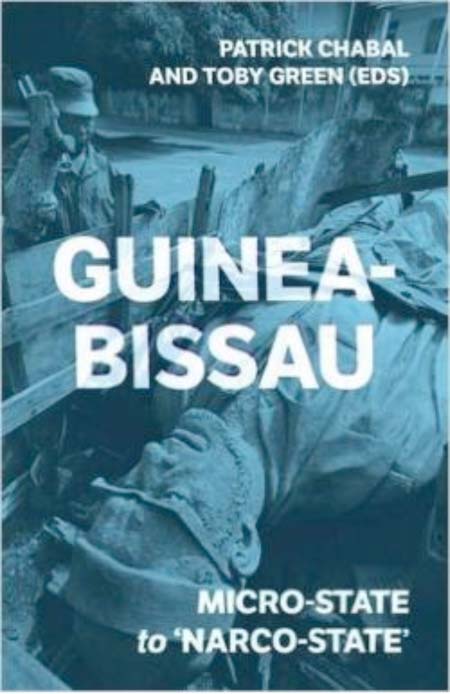
Guinea-Bissau:
Micro-state to Narco-State is a new book which was launched in early May in
Bissau and London. Edited by two academics from King’s College London – Patrick
Chabal (who died in 2014) and Toby Green – the chapters examine the country’s
history, politics and foreign relations. ‘From agriculture and migration (many
of its citizens flee across Africa and into Europe looking for employment
opportunities) to the legacy of colonialism, Guinea-Bissau aims to highlight
the rich history of one of Africa’s poorest countries’ writes reviewer Anthony
Lowenstein. The book has got a critical review in the March issue of the
respected US journal Foreign Affairs.
The
book is published by the respected Oxford University Press and Hurst
Publishers. Gambian scholar and historian Hassoum Ceesay has contributed a
widely acclaimed chapter in the book titled ‘Guinea Bissau: the impact of the
‘narco-state’ on her neighbours’. In this chapter, the Gambian historian
explains: “While the narco-traffickers did not seize power in Guinea Bissau,
they were indeed extremely close to the centre of power; and while drugs did
not run the country, traffickers took advantage of the state’s inherent
weakness and exacerbated it by their presence’. According to Ceesay, the only
way to take the nation out of this morass is to reform the military, noting
that without this, “it will be a Herculean task to set the country on the path
of stability and growth’. Ceesay further explained the diplomatic role that
Gambia played in settling the 1998-1999 civil war in Bissau and how this role
gave Gambia a fleeting diplomatic success. Sadly, as the successive governments
in Bissau tumbled, Banjul’s role diminished and was later to be seen to be part
of the problem.
At
the launch in Bissau recently, held at the Institute National of Research
(INEP) in Bissau, one of the editors Dr. Green noted that the idea for the book
started in 2012 at the height of the political crises in Bissau marked by the
death of three presidents and numerous botched coups. Also, this was the period
when the country was being traduced by negative press coverage as a
‘narco-state’where the Andean drugs traffickers have set up shop. ‘We wanted to
bring out the entire complex picture and not just the media led feed of
narcotics and coups’, said Dr. Green. Chapters in the book were contributed by
scholars respected in Guinea Bissau Studies such as Christopher Kohl, Dr.
Miguel Baroso, a respected Bissau sociologist and D.r Carlos Cardoso, another
Bissau intellectual who headed research at CODESRIA in Dakar until 2016.
The
Bissau launch was witnessed by the Brazil and Portuguese ambassadors, writers,
academics and was chaired by Dr. leopldo Amado, Director General of INEP.

